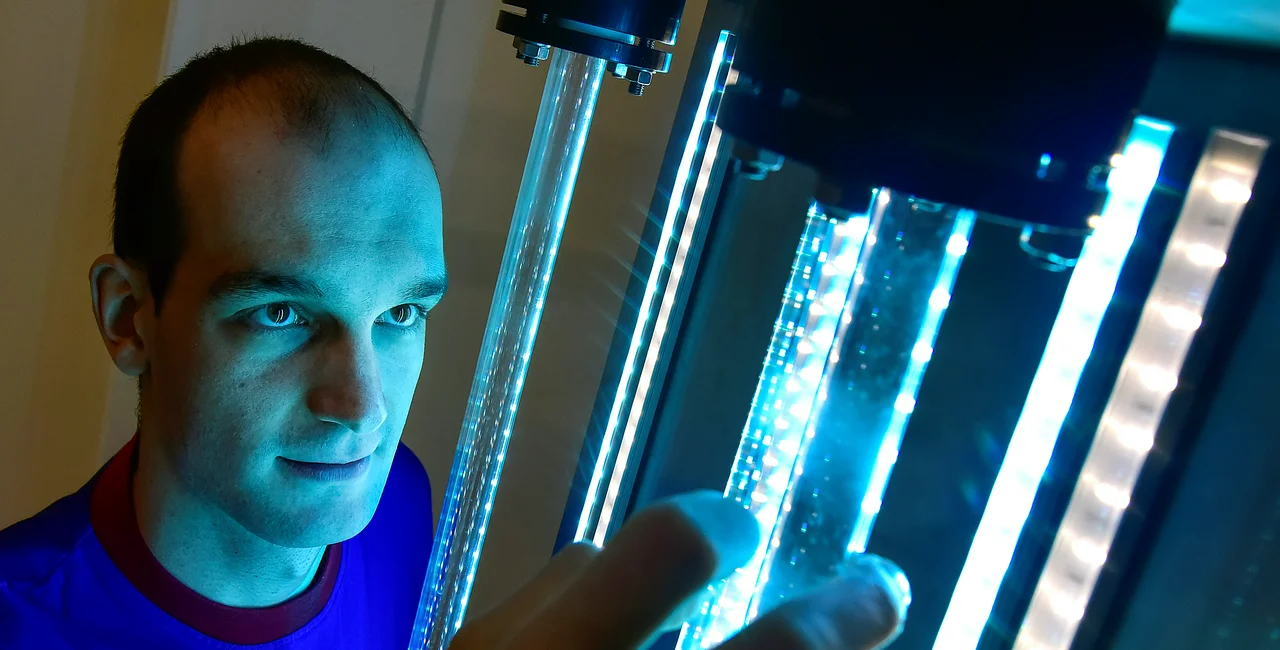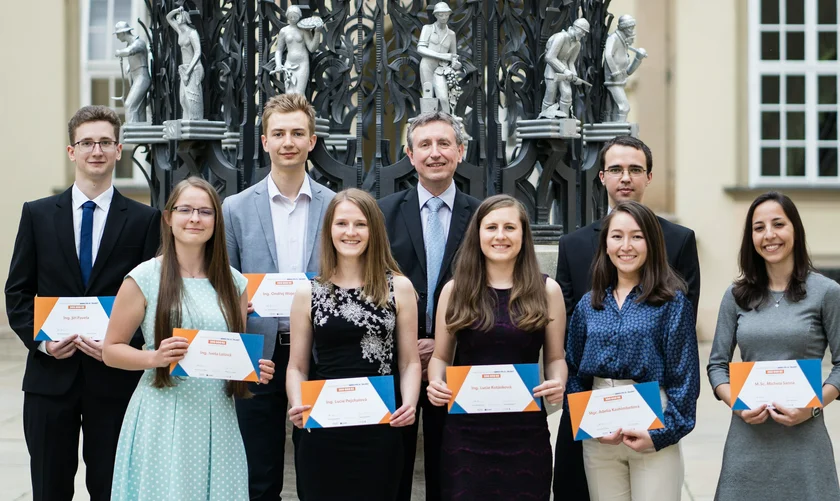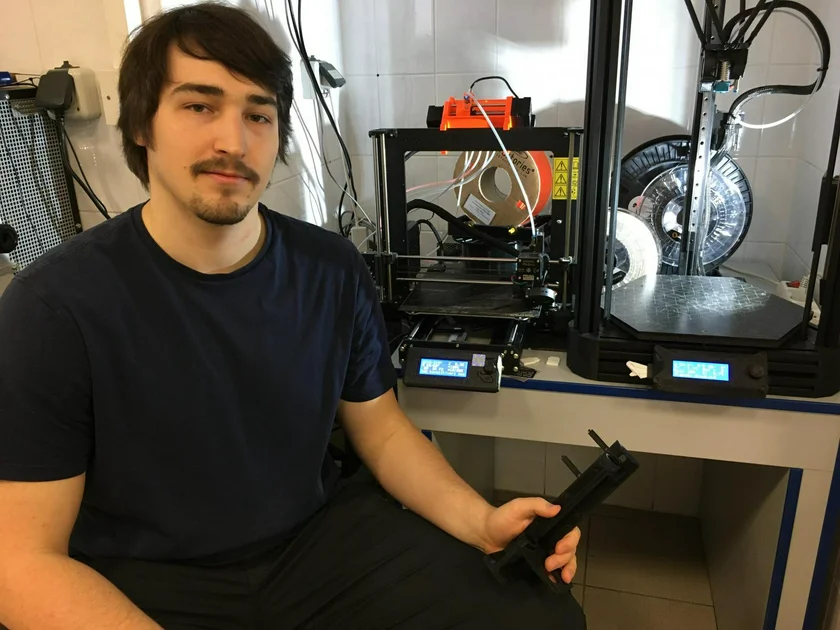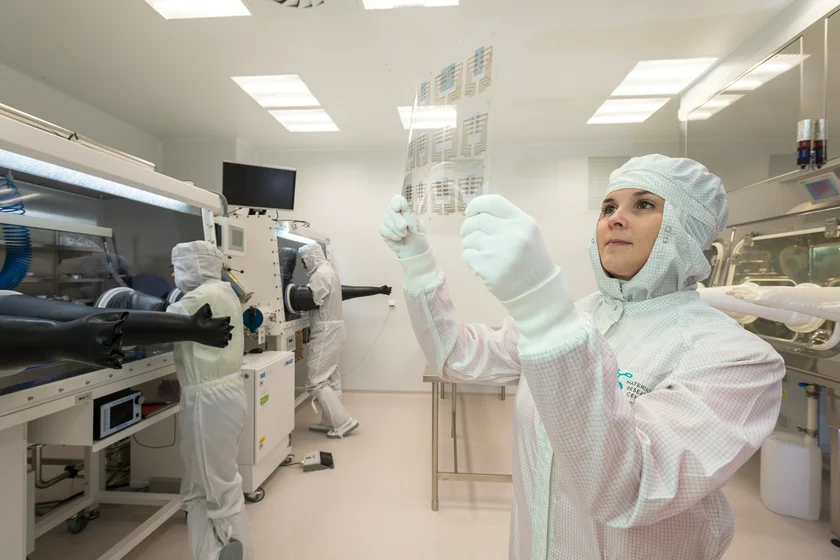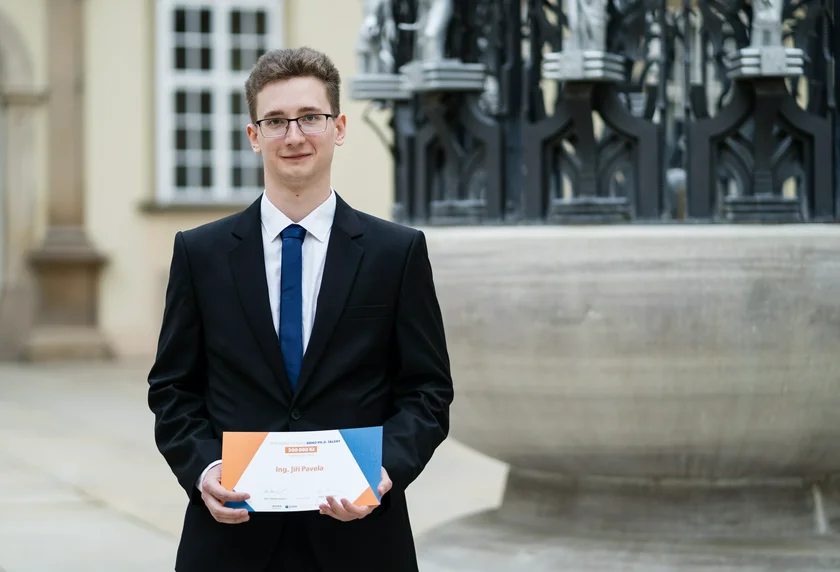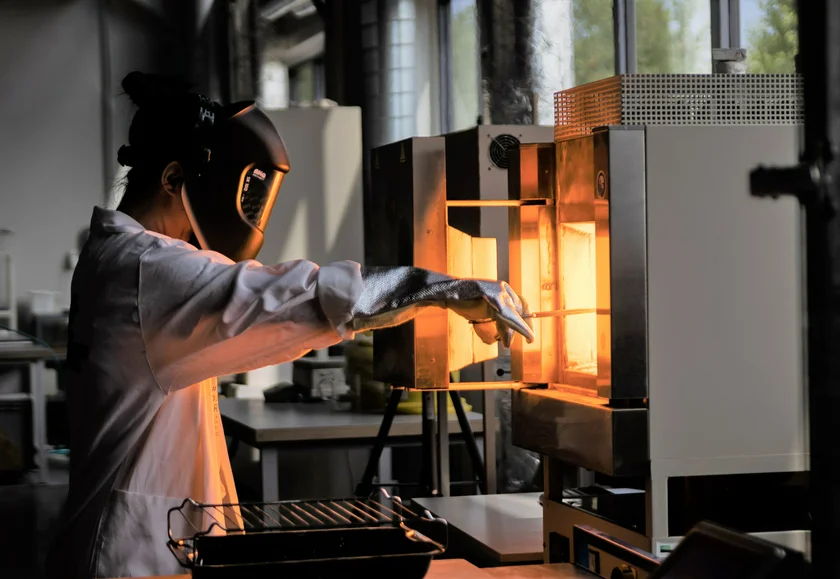The Brno University of Technology (BUT) is the largest technical university in the Czech Republic. With eight faculties, three university institutes, and seven research centers, and boasting a student body of almost 20,000, BUT is a top choice for tech and science students and has become an internationally respected educational, scientific, and research institution with significant standing in Central Europe.
Some 4,000 foreign pupils, close to one out of every five, attend BUT where a number of Bachelor’s, Master’s, and Doctoral programs are taught in English. The university offers a particularly warm welcome to graduate students, many of whom are drawn to Brno by a combination of the university’s international renown and the chance to live in an affordable and student-friendly city – which may even reward their work with a Brno Ph.D. Talent prize.
The Brno Ph.D. Talent program is an annual competition that supports Ph.D. students in the field of science and technology. Each year 25 talented young scientists, who can prove that they have an innovative scientific project idea, are awarded a grant of 300,000 CZK. The grant is financed by the City of Brno and is designed to attract doctoral candidates to Brno, where they can pursue their studies without financial worry.
Doctoral students from BUT have had repeated success in the competition, and have received funding for a variety of innovative and exciting projects. Recent winners include students with projects in the fields of medical diagnostics, computer coding, and greenhouse gas reduction. Each winner received a grant worth 100,000 CZK per annum for three years.
Jan Zítka, a student of the Faculty of Electrical Engineering and Communication Technologies at BUT and CEITEC BUT won a Brno Ph.D. Talent award for his prototype diagnostic unit, which can provide real-time information during surgery whether a patient has developed from sepsis, or suffered a heart attack.
The device is designed to test blood samples and provide results during the operation, cutting out the need to send samples to faraway laboratories – easing logistics, saving time, and potentially saving patients’ lives.
Zítka’s hope is that the device will eventually be used to provide immunochemical diagnostics at the point of care, allowing blood samples to be tested by general practitioners, but he recognizes that there are significant challenges that must be overcome to create a device that is widely used.
“A general practitioner cannot afford an expensive device, so I must try to keep the cost of production, and therefore the final price, as low as possible,” says Zítka. “It should also be as simple as possible, but it must be able to perform on a comparable level to a laboratory to which doctors routinely send samples today.”
Jiří Pavela, a doctoral student in the Faculty of Information Technology at BUT, has also developed a tool for testing, this time for finding bugs in software that make applications “freeze”. Pavela sees the Brno Ph.D. Talent award as proof that his dissertation makes sense, which has given him confidence that his work will have a real-life application, and will go on to have a positive impact on the work of many people.
Pavela’s bug detection tool is designed for really large software, such as cloud solutions from Microsoft or Amazon, or applications such as Facebook, where developers face tens of millions of lines of code.
“Although many tools already exist for this purpose, using them for very large projects with millions of lines of source code is often very time-consuming,” he says. “And the available solutions could not be applied to such complex projects.”
The award will allow Pavela to devote himself fully to his research, and he is hopeful that by the end of his three-year doctorate, his solution will be really useful in practice.
Another winning project was that of Miroslav Rebej, a doctoral student at the Faculty of Mechanical Engineering at BUT, who hopes to design a bioreactor that will house algae that are not only capable of cleaning flue gases, but also release oxygen into the atmosphere. Rebej is currently modeling the bioreactor project using computer simulations.
Repeatedly modifying a bioreactor prototype would be costly and time-consuming, so the computer simulations allow Rebej to determine the behavior of algae in advance and modify the prototype accordingly. “At the end, we should have a model that could take into account the movement of the algae, the amount of light and nutrients that it has,” says Rebej, “and we should know if the algae will grow and how much under the given conditions.”
Rebej believes that once the bioreactor is configured correctly, the microalgae have the potential to consume pollution and successfully clean combustion gases. Additionally, as the algae emit oxygen into the air due to photosynthesis, the bioreactor has the potential not just to reduce greenhouse gases, but to create life-giving oxygen as well.
The Brno Ph.D. Talent competition is open and currently accepting applications. Doctoral students can apply for the award if they are in the first or second semester of their studies i.e. new students, or students who commenced their doctorates in the spring semester of 2021. The competition is held in English, so it is suitable for both Czech and foreign students, who are interested in studying in Brno.
According to this year’s QS World University Rankings, Brno is rated as the world’s sixth-best city for students. Brno is home to an astonishing 13 universities, giving it the highest percentage of students in any of the QS-ranked cities. (Ranked sixth on the list, it just edged out Prague, which came in eighth place.)
The ranking assessed cities on a range of factors, including arts and culture, affordability, nightlife, employment opportunities, diversity, tolerance and inclusiveness, ease of getting around, and friendliness.
Brno ranks very favorably on all counts, and like Prague, its public transport runs 24 hours a day, but unlike Prague, Brno is still relatively undiscovered by tourists, and its historical center can be enjoyed without huge crowds. As the capital of Moravia, Brno has its own very distinct flavor, but it is also very well connected by road and rail to the central European capitals of Prague, Vienna, and Bratislava, all about two hours away.
This article was written in association with Brno University of Technology. To read more about our partner content policies see here.












 Reading time: 5 minutes
Reading time: 5 minutes 